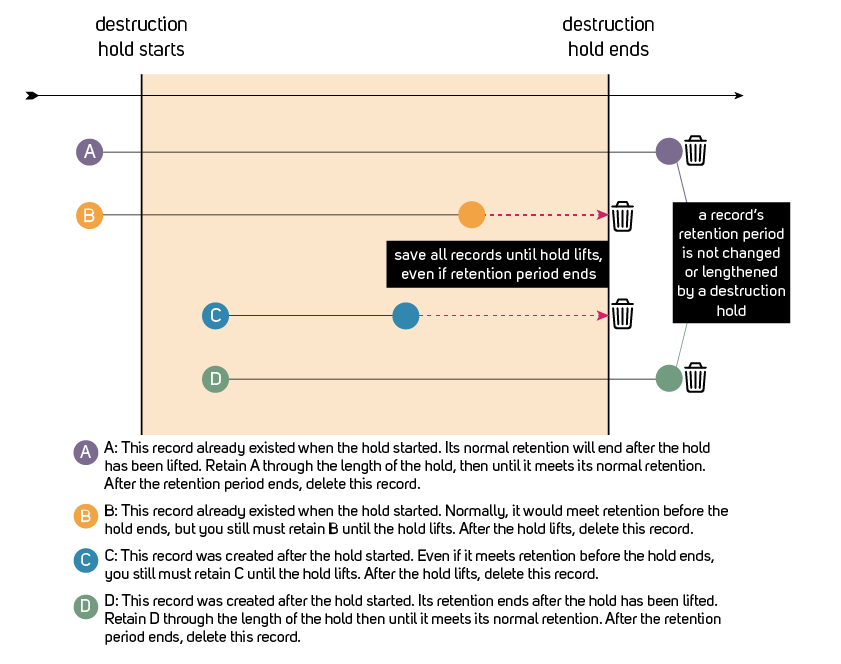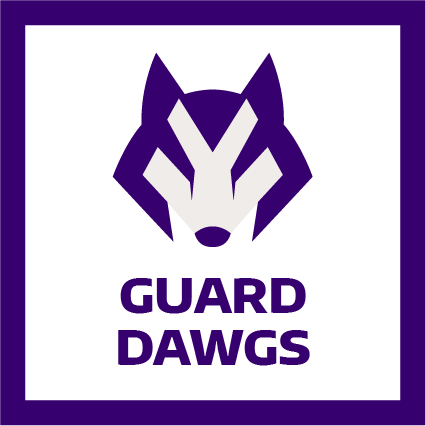Join our Listserv! Contact Us The ROT Squad
Records: Broken at the Olympics, Managed at UW
Generative artificial intelligence (AI) interim guidance
As students, faculty, and staff across the UW are exploring ways to use generative artificial intelligence (AI), our office is providing interim guidelines around the use of this technology and the associated records management compliance implications. Everything created, received, and used by the UW and its employees is considered a record that is required to be managed in accordance with a legally approved retention schedule--and the records created and received by generative AI are no different. While we are inspired about the uses this technology can have at the UW, we also must acknowledge the compliance implications all employees face when using it.
While the current guidelines we created may be subject to change based on the recommendations of the UW AI Task Force, it is important to acknowledge that generative AI platforms are not recordkeeping repositories and that the inputs created and outputs received should be considered transitory in nature. If input or output data needs to be referenced long-term or is to be relied upon to create a substantive record, users should ensure that data is exported and saved in a more secure repository to be retained based on content not format. For details on this guidance, please visit our interim guidelines. Contact our office if you have questions: recmgt@uw.edu.
Retention Update: Legacy GCCRs now 6 years after end of fiscal year
Effective Immediately
In July 2023, as part of UW’s extensive updates to its financial systems, a new effort system went online, which ended the old GCCR (Grant and Certification Report) process. GCCRs are now known as Project Statements and centrally managed by our colleagues at Post Award Fiscal Compliance.
Previously, the legal retention requirement was for offices/departments to hold on to these reports locally for 12 years after end of fiscal year. This retention requirement has changed drastically. Effective immediately, the retention period for any legacy GCCRs is 6 years after end of fiscal year. If your office/department holds local copies of any legacy GCCRs, July is the perfect time to conduct an audit to determine which GCCRs are past retention and can be purged or deleted.
For more details, refer to Project Statements on the UW General Records Retention Schedule.
If you have any questions, please reach out to our office by contacting us at recmgt@uw.edu.
New resource: destruction holds timeline diagram
A brief refresher: all records pertaining to ongoing or pending audits, lawsuits (or even reasonably anticipated lawsuits), or public record requests must not be destroyed, damaged, or altered until the issue is resolved and you are explicitly advised that such records may be destroyed. Departments must immediately identify and locate all materials related to the matter, suspend destruction of those records, preserve responsive records in their original electronic format, and preserve hard copies if they exist.
We are frequently asked how to apply retention for records subject to a destruction hold, particularly after a destruction hold ends. After years of impromptu sketching on whiteboards, we added a new diagram of the destruction hold timeline to our Destruction Holds guide. As a reminder, our guide also includes detailed instructions on how to preserve and export websites, email from Outlook and Gmail, and other electronic records.

Good offboarding keeps the data in the yard
Last month we outlined a new initiative we’re starting called Guard Dawgs that aims to help offices keep their records safe and accessible for the entirety of their retention periods.
One of the most important moments in taking care of your office’s records is when someone leaves. You don’t want to lose access to records that are saved on someone’s computer desk top, in their email inbox, or saved under their netid on OneDrive or Google Drive.
 Watch our training Offboarding: Cleared for Takeoff to learn more.
Watch our training Offboarding: Cleared for Takeoff to learn more.
Feeling inspired to step up your office’s safeguarding efforts?
Review our Training: Introduction to Vital Records.
If you have any questions or if you want to set up a consult with us to better improve your practices in safeguarding your records email us at recmgt@uw.edu.
The best anniversary present…ever!
Hard to believe it has been one year since Workday Finance went live! Considering that the first year traditional anniversary present is actually paper (how perfect this that), we thought we would take the  opportunity to remind you that one of the major benefits of Workday is….no more paper! Since 2017 and Workday HR/Payroll we have had an enterprise wide scanning policy for Workday. This means you can scan any paper invoices, receipts and packing slips, attach them to Workday and as soon as the transaction is approved destroy the original paper.
opportunity to remind you that one of the major benefits of Workday is….no more paper! Since 2017 and Workday HR/Payroll we have had an enterprise wide scanning policy for Workday. This means you can scan any paper invoices, receipts and packing slips, attach them to Workday and as soon as the transaction is approved destroy the original paper.
In fact to make things even easier, Workday is considered the legal system of record for the UW. As such, it is completely unnecessary to keep copies of the PDFs you upload to Workday. That Workday notification to log in and approve a purchase or travel—delete as soon as you complete the action. That delivery status email from Amazon or any other vendor—delete as soon as the product is received. That invoice or receipt you received in email—delete as soon as you create a PDF to attach to Workday. Even that approval email to make the purchase or reserve the travel, once approved in Workday—delete it. Think of Workday as one stop shopping. If you attach it to Workday or approve it in Workday you don’t need a local copy. And that is something worth celebrating!
FETCH THE FUTURE...GO DIGITAL
WE ARE ALWAYS HERE TO HELP
Barbara Benson
Emily Lemieux
Lynn O'Shea
Sean Whitney
Laetitia Rhodes Kaiser
206-543-7950